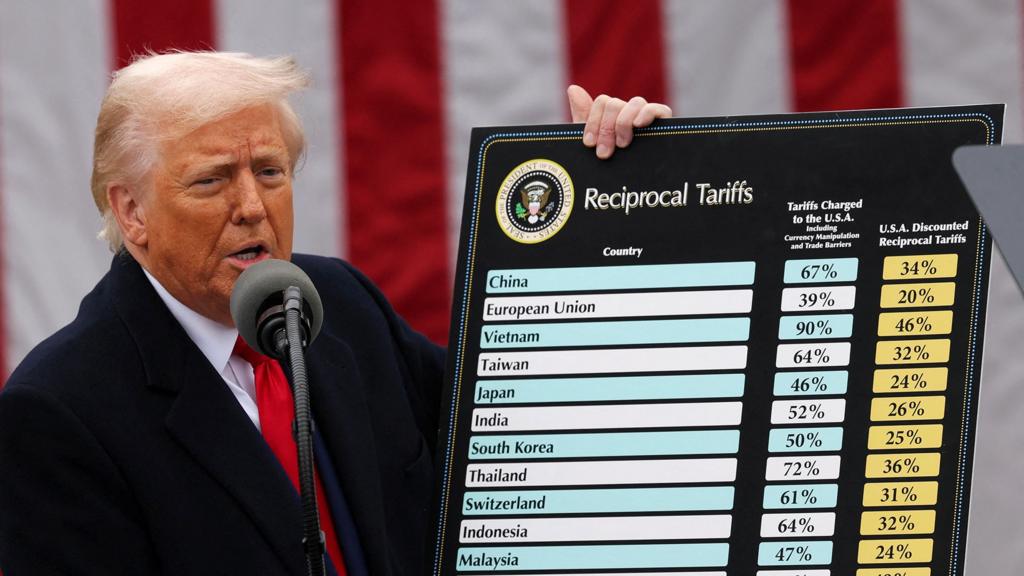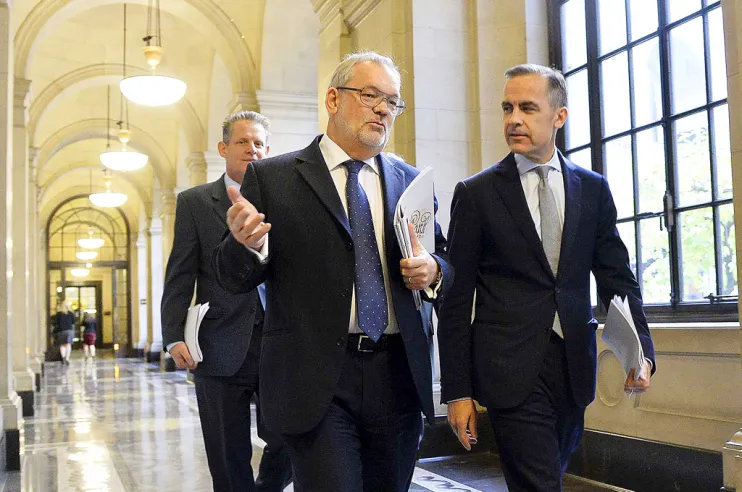Trump’s Tariff Turmoil


Bank of England Urged to Cut Interest Rates to 4% in May Amid Global Trade Disruption
Former Deputy Governor Charlie Bean Calls for Bold Action in Response to U.S. Tariff Shock
Charlie Bean, former deputy governor of the Bank of England, has called on the central bank to cut interest rates by at least 0.5 percentage points to 4% at its upcoming May meeting. He argues that swift action is needed to counter the economic turmoil caused by former U.S. President Donald Trump’s recently announced trade tariffs.
Bean warned that Trump’s tariffs have wiped trillions off global stock markets, seriously damaging business and consumer confidence. To mitigate the economic fallout, he believes the Bank of England must adopt a more aggressive approach than currently anticipated.
Bean, who also previously served as chief economist at the Office for Budget Responsibility (OBR), said rising uncertainty would likely prompt businesses to delay investments and discourage consumer spending. Despite traditionally supporting higher interest rates, he said the current “crazy situation” in the U.S. justifies a more substantial rate cut.
"When consumer confidence collapses, you're staring down a recession"
Severity of the situation
Another former Bank of England policymaker, David Blanchflower, agreed that Bean’s comments highlight the severity of the situation. Blanchflower urged the Bank to consider an emergency meeting ahead of the scheduled 8 May decision to implement a sharp rate reduction aimed at shoring up confidence and averting a potential recession.
“When consumer confidence collapses, you’re staring down a recession,” Blanchflower said.
Financial markets have currently priced in a smaller 0.25 percentage point cut to 4.25% in May, with expectations of two additional similar cuts by year-end—bringing the rate down to 3.75%.
According to recent OBR projections, a global trade dispute of this scale could reduce UK GDP by 1% and extend the country’s economic stagnation by another year.
Trump’s tariff plan includes a blanket 10% charge on all imports to the U.S., with steeper rates of up to 34% on certain goods from countries like China and EU member states.
Speaking to The Guardian, Bean said: “The issue isn’t just the tariffs themselves, but the enormous uncertainty they’ve created—causing delays in business and consumer decision-making.”
Explaining the need for a larger-than-expected cut, he added: “In November 2008, markets predicted a quarter-point cut, or perhaps half. The actual situation demanded more.”

The bank must respond
“We were in contact with our regional agents, and they reported that business orders had dropped sharply—it was clearly a very serious situation,” he said.
“Our decision to implement a 1.5 percentage point rate cut surprised many, but it was both significant and absolutely necessary at the time.”
He acknowledged that the current tariff situation may not be on the same scale, but emphasized that it still represents a disinflationary shock—one that the Bank must respond to decisively.
He also noted an increased risk of a financial crisis as businesses adjust to the new trade tariffs. The collapse of a financial institution or hedge fund in the U.S., he warned, could spark a wider panic—similar to the turmoil surrounding the LDI pension funds, which forced the Bank of England to step in following Liz Truss’s mini-budget.

